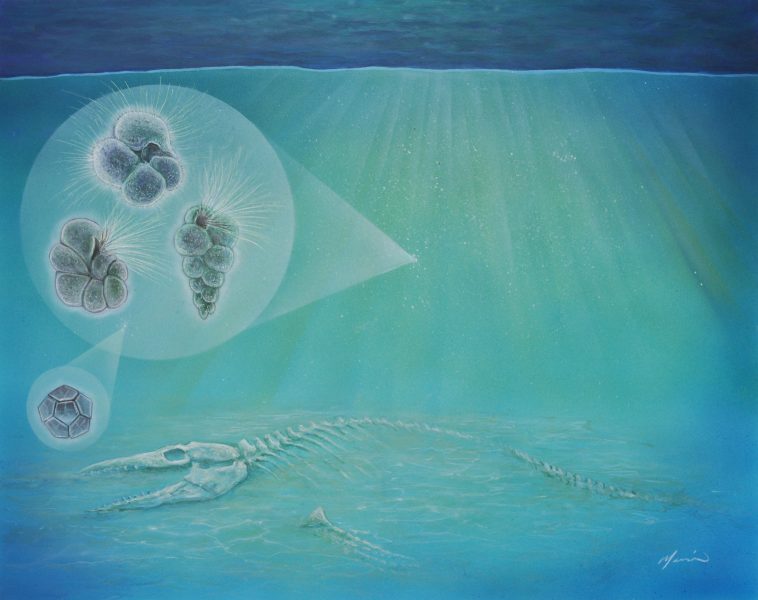Meet the student: Read an interview with Landon Lockhart Landon Lockhart, a graduate research assistant at UTIG and PhD student at the Jackson School of Geosciences, has received third prize in the Halliburton Landmark Earth Model Award 2018 for his master’s thesis on pore pressure prediction. The Halliburton Landmark Earth Model Award is an international… Continue Reading Graduate Researcher Landon Lockhart Earns Halliburton Landmark Earth Model Award
New Computer Modeling Approach Could Improve Understanding of Megathrust Earthquakes
Years before the devastating Tohoku earthquake struck the coast of Japan in 2011, the Earth’s crust near the site of the quake was starting to stir. Researchers at The University of Texas at Austin are using computer models to investigate if tiny tremors detected near the site of the quake could be connected to the… Continue Reading New Computer Modeling Approach Could Improve Understanding of Megathrust Earthquakes
Indian Ocean May Be More Disruptive to Tropical Climate Than Previously Believed
The Indian Ocean played a far greater role in driving climate change during the most recent ice age than previously believed and may disrupt climate again in the future. That’s according to a new study from The University of Texas at Austin, the findings of which could rewrite established Pacific-centric theories on tropical climate change.… Continue Reading Indian Ocean May Be More Disruptive to Tropical Climate Than Previously Believed
New study reveals connection between climate, life and the movement of continents
A new study by The University of Texas at Austin has demonstrated a possible link between life on Earth and the movement of continents. The findings show that sediment, which is often comprised from pieces of dead organisms, could play a key role in determining the speed of continental drift. In addition to challenging existing… Continue Reading New study reveals connection between climate, life and the movement of continents
Life Recovered Rapidly at Impact Site of Dino-Killing Asteroid
About 66 million years ago, an asteroid smashed into Earth, triggering a mass extinction that ended the reign of the dinosaurs and snuffed out 75 percent of life. Although the asteroid killed off species, new research led by The University of Texas at Austin has found that the crater it left behind was home to… Continue Reading Life Recovered Rapidly at Impact Site of Dino-Killing Asteroid





